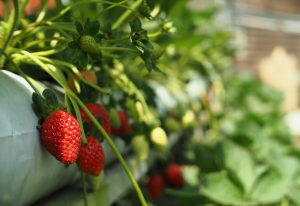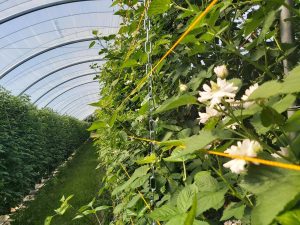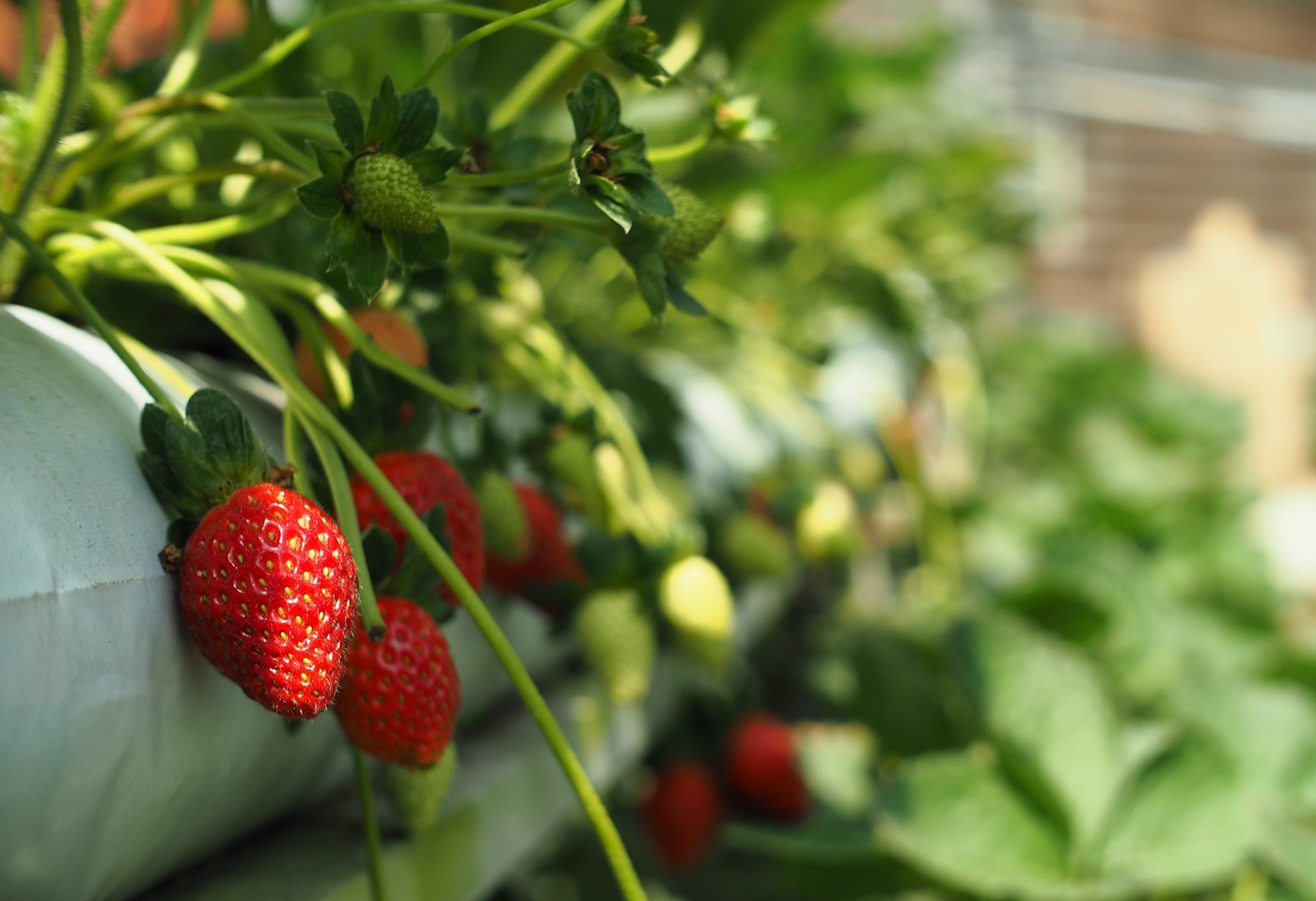Ahead of our first Water Abstraction Group workshop on 25th March, Dr Sam Hughes, Senior Water and Land Stewardship Officer, explains how growers are better working together to secure water for their crops – with major changes on the way.
The South East of England, particularly areas such as the Medway and north Kent, is a key sourcing area for fresh fruit and vegetables, grown by the horticulture sector.
Most growers rely at least in part on abstracting fixed volumes of water from the environment under a licensing system from the Environment Agency that began in the 1960s. However, that system needs updating, especially in our region, where water scarcity has been exacerbated by the growing needs of a densely populated area and climate change. We are increasingly subject to the extremes of drought and rainfall.
Therefore the Government has brought in new legislation – namely the Environment Act to help balance the needs of the environment, which needs sufficient quantities of water retained in rivers to thrive, our human needs and those required by growers to ensure food security.
Part of the new legislation supports reform of the amount of water that growers can abstract. The changes could mean that, in the near future, growers might face cuts in the amount of water they are permitted to abstract, which could impact their business and domestic food security. The answer lies in collaboration to have a voice in regional water resource planning, which takes a holistic look at the needs of different sectors.
The rise of the WAGs – Water Abstraction Groups

Many growers of fresh fruit and vegetables including strawberries, pears, apples and peppers, are already highly innovative when it comes to water, from precision irrigation to rainwater harvesting and storage. However, some growers rely to an extent on drawing water from mains supply to supplement crop irrigation during the peak growing season. This is an expensive option and not necessarily the best for crop irrigation.
As part of a multisector group of water users with diverse needs, the voice of fresh food growers in planning is vital. That voice is stronger when growers work together rather than alone. Water Abstractor Groups – also known as WAGs – provide that much needed collective voice that speaks up for abstractor rights in regional water planning and management processes.
WAGs also mean better dialogue with regulators such as the Environment Agency or Natural England, shared resources and pooled knowledge. By raising awareness about water scarcity, climate change and drought impacts, the members of a WAG can adapt more nimbly to changes in regulations and are generally better informed of opportunities to ensure they get their fair share of water resources.
WAGs are well established in key sourcing areas such as East Anglia, where water, the environment and food security are fundamental. For example, the Broadland Agricultural Water Abstractors Group, formed in 1997, now has 170 members acting as a forum for discussion on sustainable water management and addressing issues of policy.
But is there an appetite for WAGs in the South East? How do they work? How are they set up and what can growers in the South East expect from them?

Now, more than ever, is the time to work together on building sustainable water resilience for businesses that produce our food.
Through the Holistic Water for Horticulture Project (a Courtauld Water Roadmap Project), the South East Rivers Trust is collaborating with key partners to organise two workshops over 2024. These will talk with growers and farmers about the role of WAGs in a collective approach to sustainable water management for food production, in abstraction reform and in regional planning.
These workshops will be held in collaboration with the National Farmers Union (NFU), Water Resources South East, the Environment Agency, established Water Abstractor Groups (WAGs) and regional water companies.
If you are a grower, a farmer or an advisor interested in the workshop themes sign up for the first on 25th March or email holisticwaterforhorticulture@southeastriverstrust.org
Read more about the Holistic Water for Horticulture project on our dedicated website.

